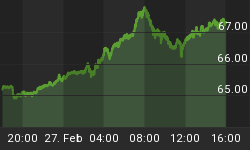The Financial Times published an interesting article a couple days on the concept of growing democracy in China.
Despite a few anecdotes in the article, the idea of a large or growing democracy in China is unfounded given Chinese central authority trampling of human rights and property rights, on top of having the world's largest central planning scheme.
However, what most caught my eyes was the sheer amount of real estate malinvestment, given wages are grossly out of alignment with the costs to purchase the units now under construction.
Please consider China: A democracy is built.
In many ways, property is the focus of the story of modern China. The double-digit economic growth of the past decade has been driven in part by the real estate explosion in more than 100 cities that has accompanied the process of industrialisation. It is also at the root of an apparent "super-cycle" of rising commodity prices that has lasted several years. Some observers see property as the country's main economic vulnerability because of the potential for the growth of a bubble - "a treadmill to hell", as Jim Chanos, the American investor, has put it.
In the past couple of years, there has been an epidemic of violent confrontations over forced demolitions as the urbanisation drive that has accelerated in the past decade has spread away from the coast, boosted by the massive stimulus programme that began in late 2008. The demolitions are behind as many as 65 per cent of large protests in rural areas, according to research by the Chinese Academy of Social Sciences.
In January, a 38-year-old woman was killed by a digger in Henan province, north-central China, as she protested against a construction project. In November, a man in the north-east set himself on fire during a stand-off with a demolition crew. One citizen has set up a website called Bloodstained Property Map to chart the incidents. It uses Google maps to mark violent evictions, and provides background information and media links. So far, there are nearly 200 incidents on the map, with regular additions.
"When I say that new housing is being built right now on land covered in blood, people know what I mean," the site's founder, who prefers to remain nameless, told Chinese media last year. "Media coverage can gradually fade out, so we need a new way to constrain the problem.
The danger posed by urban development is not only the creation of a property bubble but also of widespread political conflict.
"This is a very distorted model of urbanisation that cannot go on for ever," says Prof Tao.
Unsustainable Math
Save a few anecdotes of "victory" the article is brutally miss-titled. However, it is well written and researched. It is worth a closer look to see what it took in terms of the trampling of lives needed to create China's boom.
Also note that second graph. China is approaching 4,000 million square meters of constriction, most of it residential. That is approximately 43 billion square feet of ongoing construction, for a population of 1.3 billion people of which only a very tiny percentage can afford to buy that construction.
Is it any wonder China has so many vacant homes, offices, malls, and even cities.
In case you missed it, please consider Amazing Satellite Images Of The Ghost Cities Of China on the Business Insider.
"There's city after city full of empty streets and vast government buildings, some in the most inhospitable locations. It is the modern equivalent of building pyramids. With 20 new cities being built every year, we hope to be able to expand our list going forward."
More Vacant City and Reckless Credit Expansion Stories
- Timing the China Property Crash
- Speculation, Investment Scandals, Fraud, and China's Hard Landing; Miracle of Chinese High-Speed Rail will be Reduced to Dust; Peak Oil Doomsday Clock
- Chinese Bank Lending Spree Continues; $75 Billion New Loans First Week in January Alone; Inflation Gone Amuck
- Implosion of the China "Fabric City" Frenzy
- 10 Signs of Speculative Mania in China
- Email from a Chinese on China's Real Estate Bubble
China bulls insist this is sustainable. The construction numbers alone vs. the overall population shows otherwise, even if the Chinese could afford to buy those units.
















